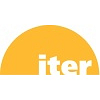Postdoctoral Researcher, Diagnostics Systems - Marseille, France - ITER
Description
The ITER Organization brings together people from all over the world to be part of a thrilling human adventure in southern France—building the ITER Tokamak.
We require the best people in every domain.Our working environment is truly multi-cultural, with 29 different nationalities represented among staff.
The ITER Organization Code of Conduct gives guidance in matters of professional ethics to all staff and serves as a reference for the public with regards to the standards of conduct that third parties are entitled to expect when dealing with the ITER Organization.
The south of France is blessed with a very privileged living environment and a mild and sunny climate.The ITER Project is based in Saint Paul-lez-Durance, located between the southern Alps and the Mediterranean Sea—an area offering every conceivable sporting, leisure, and cultural opportunity.
To see why ITER is a great place to work, please look at this videoApplication deadline: 15/01/2023
Domain:
Engineering Domain
Department:
Engineering Design Department
Division:
Port Plugs & Diagnostics Division
Section:
In-Vessel Diagnostics Section
Group:
Laser and Microwave Systems
Job Family:
Scientific Coordination
Job Role:
Post Doc Researcher
Job Grade:
P1
Language requirements:
Fluent in English (written & spoken)
Contract duration:
Up to 5 years
Two positions
Purpose
As a Postdoctoral Researcher, you will propose, assess, model and develop design solutions for diagnostic systems.
The aim will be to find improvements in the areas of:
measurement performance, availability, reliability, maintainability, operability and cost effectiveness.
This will be achieved by assessing proposed design solutions by ITER partners, proposing alternative design solutions, assessing ability to achieve measurement requirements, assessing maintainability during operation, documenting system interfaces and system integration and contributing to formal design review of the system.
Background
ITER employs multiple diagnostics for measurements that are critical to the successful operation of the machine and to develop equivalents for future devices, including:
- An erosion monitor employing holographic interferometry techniques;
- An endoscope system combining electrostatic sampling and remote viewing techniques;
- Laserdriven systems to analyze first wall surface content spectroscopically, using insitu Laser induced desorption and breakdown techniques and offline sample analysis;
- A core Thomson scattering system with twowavelength capability;
- An edge Thomson scattering system overlapping with the core range;
- A multibeam divertor Thomson scattering system, combined with Laser Induced Fluorescence;
- Several interferometric and polarimetric systems.
Key Duties, Scope, and Level of Accountability
- Carries out original research under an agreed program in support of the development of design solutions;
- Develops models of operation of the systems;
- Assesses the performance characteristics of the systems and proposes design improvements;
- Develops the methods of operation and synthetic diagnostics;
- Develops R&D proposals, ensures their placement and assesses the results;
- Assists the responsible officers with system enhancements and critical reviews;
- As appropriate, establishes collaborations with researchers in related areas in the ITER Members;
- Publishes the results of research in appropriate conference proceedings and refereed journals;
- May be requested to be part of any of the project/construction teams and to perform other duties in support of the project;
- May be required to work outside ITER Organization reference working hours, including nights, weekends and public holidays.
Measure of Effectiveness
- Provides innovative design solutions and performance improvements to diagnostic systems;
- Produces clear analyses to support design choices;
- Sets up appropriate multiphysics models for engineering benchmarking;
- Evaluates errors and assesses performance of algorithms with realistic error sources;
- Generates clear, publicationquality material for conferences and journals.
Experience & Profile
-
_
Professional Experience:
_
- Minimum 2_ _years' experience of complex optical instrumentation systems, preferably with experimental involvement.
_Education:_
- PhD degree or equivalent in Physics or Engineering field or other relevant discipline;
- The required education degree may be substituted by extensive professional experience involving similar work responsibilities and/or additional training certificates in relevant domains.
_Language requirements: _
- Fluent in English (written and spoken).
Plus d'emplois de ITER
-
Mechanical Engineer Io0242
Montpellier, France - il y a 2 semaines
-
Microwave Diagnostics Engineer Io0584
Marseille, France - il y a 2 semaines
-
Neutral Beam Coordination Officer Io0735
Marseille, France - il y a 1 semaine
-
Nuclear Safety Engineer Io0274
Marseille, France - il y a 1 semaine
-
Electrical Engineer Io0095
Marseille, France - il y a 1 semaine
-
Magnet Control Software Engineer Io1097
Marseille, France - il y a 2 semaines

